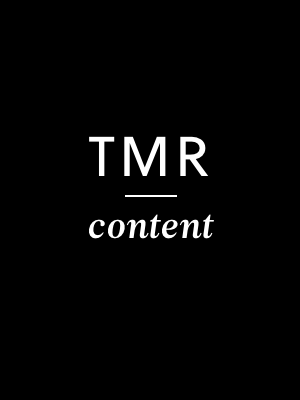Featured

Uncategorized
Feb 08 2007
The Horror! The Enchantment!
The latest issue has been here for a couple of weeks now, and more than a few compliments have come our way. The compliments belong to the authors, of course, not really to us. We’re only the middlepeople who’ve helped some good writing get into print.
It’s definitely an eclectic issue. The banner across the top talks about “understanding Holocaust history,” but the issue theme highlighted on the spine is “Enchantment.” How horror and wonder can reasonably coexist is one of the great mysteries of life, and it’s also a quirk of this particular issue. There’s enchantment in some of the marvelous prose, mostly by young writers, about youth and love. But then turn to Ellen Hinsey’s superb sequence of poems that render torture and political oppression uncomfortably tangible to the reader, and you may find yourself queasy. That’s some of the horror.

Uncategorized
Feb 07 2007
It's unanimous: we don't agree
I’m sitting at my desk, contemplating the difficulties of authors getting their work published in The Missouri Review — or any literary magazine for that matter — and true to form, one of our editors walks into my office and tells me why he doesn’t feel compelled to publish an essay I had recommended.

Uncategorized
Feb 05 2007
Surprise, We Want Your Book! Pleeese!
Some business analysts tend to see “massification” in publishing as having positive effects on the market. For example, they view huge companies with varied media properties as being more capable of withstanding slowdowns. They also view them as encouraging niche and small publishing, presumably because they leave a clearer field for them. What this means for literary authors is that by abandoning them publishers leave a great opportunity for others-an argument offering limited comfort either to the authors or their buyers. Also, some analysts view large publishers as the only ones capable of dealing with monopolistic retail chains-which begs the question of how the spectacle of heedless giants duking it out with other giants really benefits anybody.

Uncategorized
Jan 31 2007
Lit Couture
I like to dress people. No not button up their shirts, zip their pants or tie their shoes, but pick out their clothes and make them wear the outfit I’ve… read more

Uncategorized
Jan 29 2007
The Invisible Editor Gets Hate Mail
Recently I received a piece of hate mail. I have never gotten hate mail before, and it knocked me for a loop. To get hate mail you have to be famous, or you have to do something public that is controversial. Sometimes people get hate mail when they are embroiled in messy personal situations (though I suspect hate voice-mails or e-mails are more common in those circumstances).
But none of the aforementioned conditions applies to me. Well, wait a minute. One of them does, kind of. I wrote a blog for this website, and someone didn’t like it, and they sent me a very ugly letter.

Uncategorized
Jan 25 2007
Gigantische Bücher: Wonders of Contemporary Publishing
While publishers today may strenuously deny it, at heart they believe what most of their antiquated predecessors did — that their business thrives on recognizable, standardized products. Implicit in this attitude is a tangled skein of rationalizing and lost ideals, as well as a reflection of the real pressures in the current industry. Writers hear this attitude expressed so many times over their careers that sooner or later it becomes the bleak but “real truth” of publishing. It goes something like this. For convenience sake, imagine a forty-year-old male editor who’s been working for Monolith Publishing, specializing in fiction, since 1988. Monolith is now an imprint owned by a large media company based in Europe. We’re in a break room at Monolith, and he’s staring at his coffee cup with a sour look.

Uncategorized
Jan 22 2007
2006 Editor's Prize Winners!
Congratulations to the winners of the 2006 Editor’s Prize Contest. It was a tough competition this year, and we’d like to thank everyone who submitted their work to our judges.… read more

Uncategorized
Jan 19 2007
Kemper Fellows reading list
Recently a group of University of Missouri faculty created a list of their favorite influential books published since 1900. Those that made the cut were chosen for literary merit, availability, and their appeal to young readers. You can browse the titles here.

Uncategorized
Jan 18 2007
The TMR Unofficial New Year’s Wish List
Here’s our unofficial wish list for January, 2007-or any time in the next year:
•1) More great essays. I’m talking about the ones that are going to be anthologized for the next thirty years or more. They’re out there; we’re sure of it. If you’ve written one, don’t be coy; send it. We’ll pay you a thousand dollars for a full-length piece of good nonfiction. That’s really true.
•2) More smart, edgy comedy. This is my own personal wish because I like things that are funny and brain-teasing.

Uncategorized
Jan 17 2007
The Barbarous Murder
In a previous issue of TMR I wrote about the publishing industry’s often repeated claim that they don’t really know anything about literary buyers — who they are, where they are, why they buy books — and that from this cloud of self-imposed ignorance they aim too many books for the lowest common denominator. Several readers have emailed or talked with me and asked me to describe how publishing has changed from its earlier years.
The short answer is that at least in a certain way, both publishing and entertainment have changed surprisingly little. […]
